Step 4: Build custom segments that are most likely to convert
Audiences in Sona are customizable groups of accounts and individuals categorized based on specific attributes, behaviors, and intent signals. These audiences help you identify and prioritize high-intent accounts, enabling your sales and marketing teams to focus on the most promising leads.
Step 1: To create custom audiences, click on Web Visitors
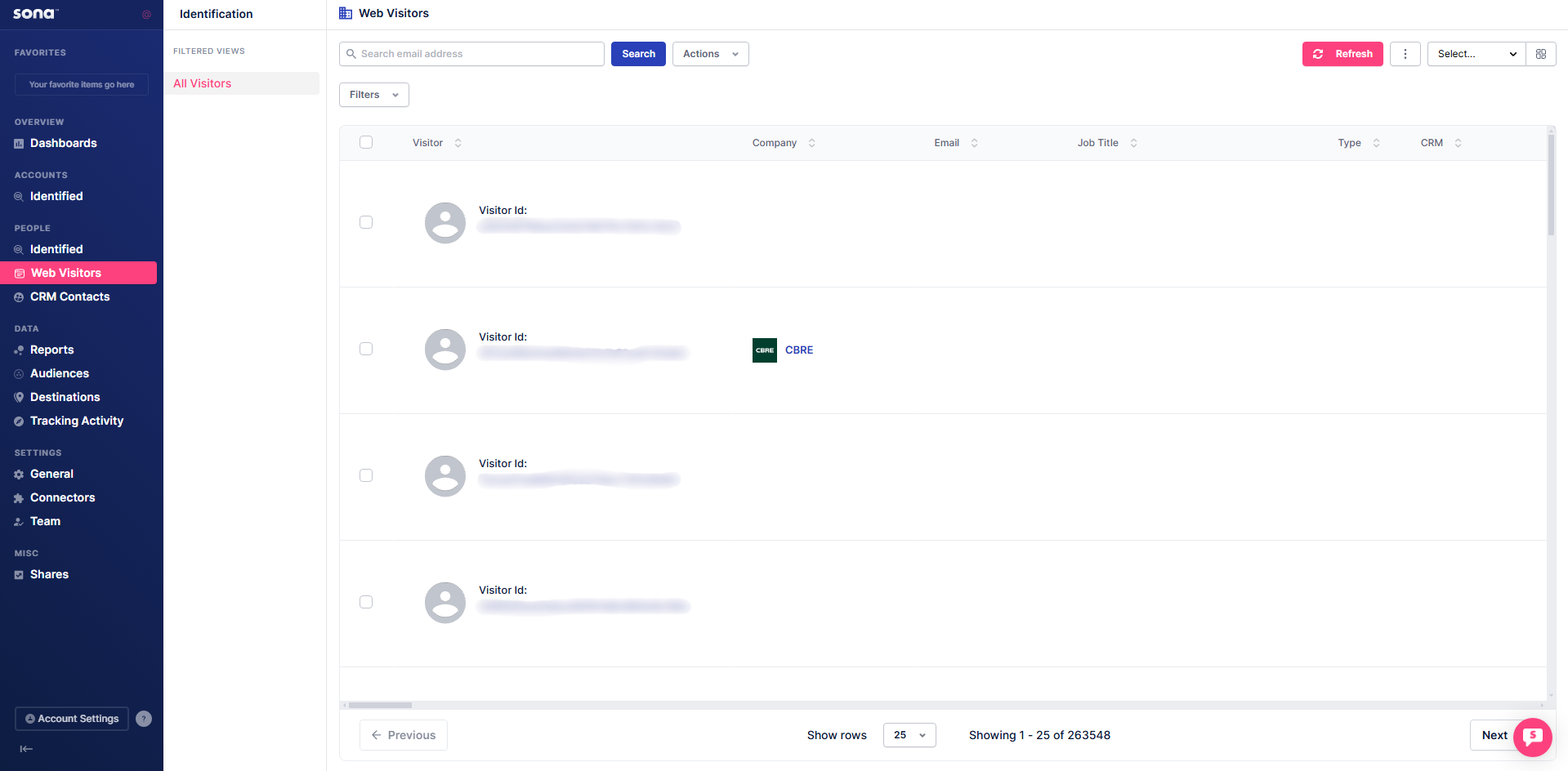
When you’re new to Sona and want to quickly identify high-intent accounts, Audiences are a great place to start. These audiences are designed to help you jumpstart your lead generation efforts by focusing on accounts and individuals showing strong engagement and intent signals.
Step 2: Click the Actions dropown and click Create Audience
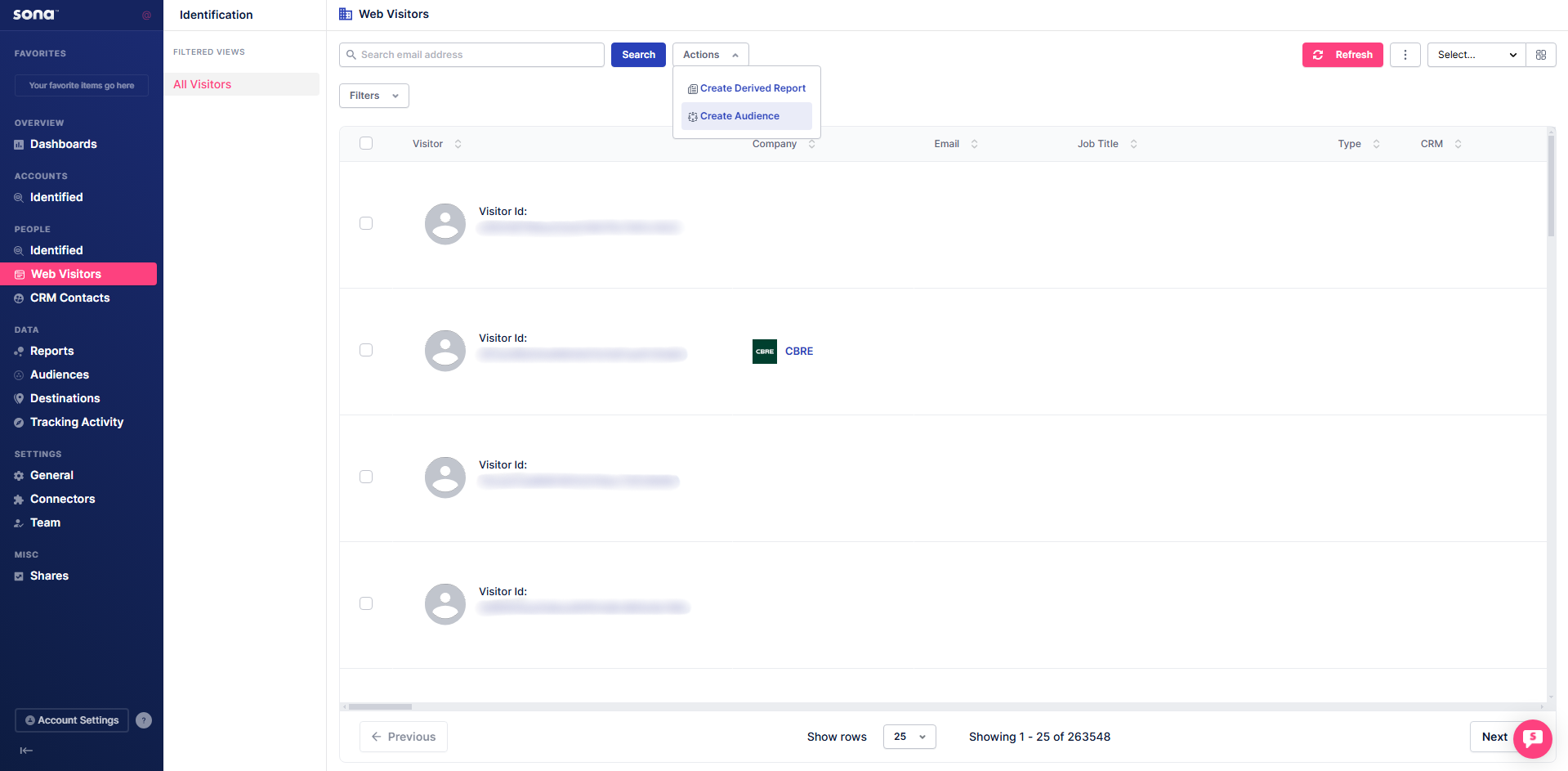
Step 3: Name the Audience
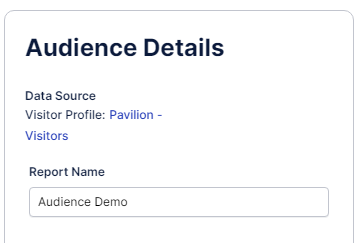
Step 4: Add filters
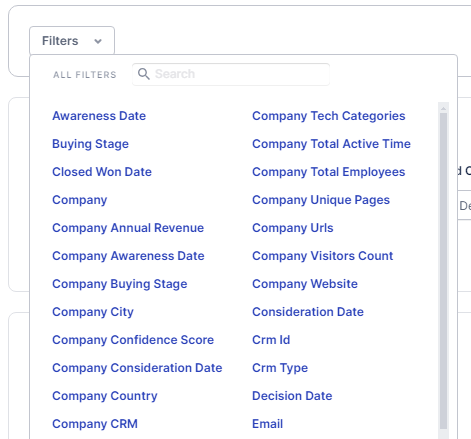
For this audience, we’ll be adding the following filter as an example: First Touch Date.
This filter ensures that the audience includes only accounts or individuals who first interacted with your website or product on a specific date and conditions.
Step 5: Next, add Data Columns

When creating a data column in Sona, you’ll see three fields: Column Name (select the data field, like Awareness Date), Process (choose how to analyze it, like Sum or Avg), and Derived Column (name the new column, e.g., Total Visits). The Derived Column name auto-fills but can be edited.

Click Add Extraction / Grouping button or Prefill to automatically populate the list with all the columns from the source report.
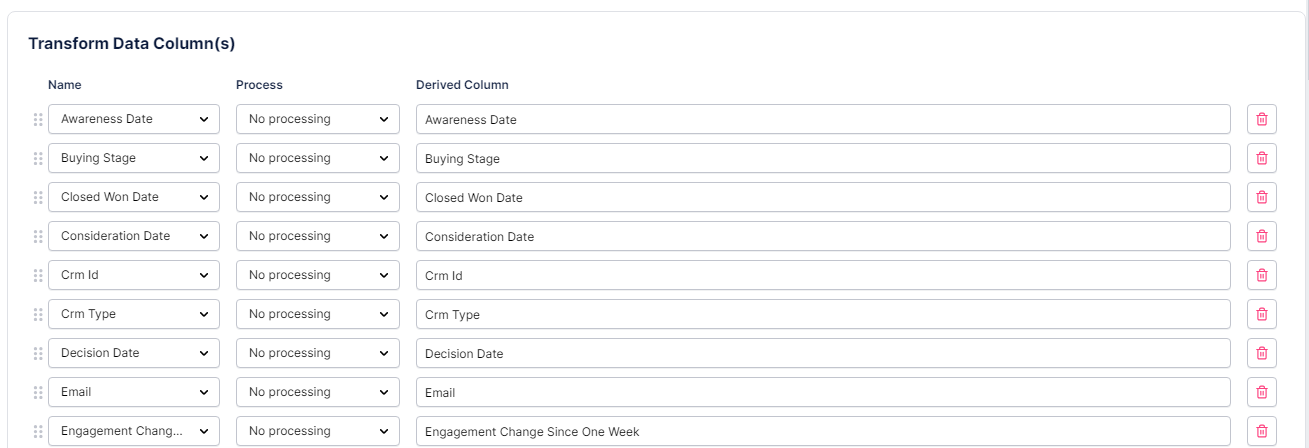
You can click the trash icon at the end of each attribute to remove columns or Remove All button to remove all the current listed attributes. If a column is not in the list, it won't show up in the audience report.

Step 6: Add Metrics Column (Optional)
The Insert Calculate Metrics Column(s) section lets you create custom metrics by naming them (e.g., “CPC”) and defining formulas like Total Ad Spend / Total Clicks. It’s a quick way to generate insights like cost-per-click or conversion rates directly in your audience.

Step 7: Add Columns (Optional)

The Insert Column(s) feature lets you add custom data columns by naming them (e.g., “Campaign Source”) and assigning values (e.g., “Google Ads”). It’s perfect for adding static or custom data to make your audience more tailored.